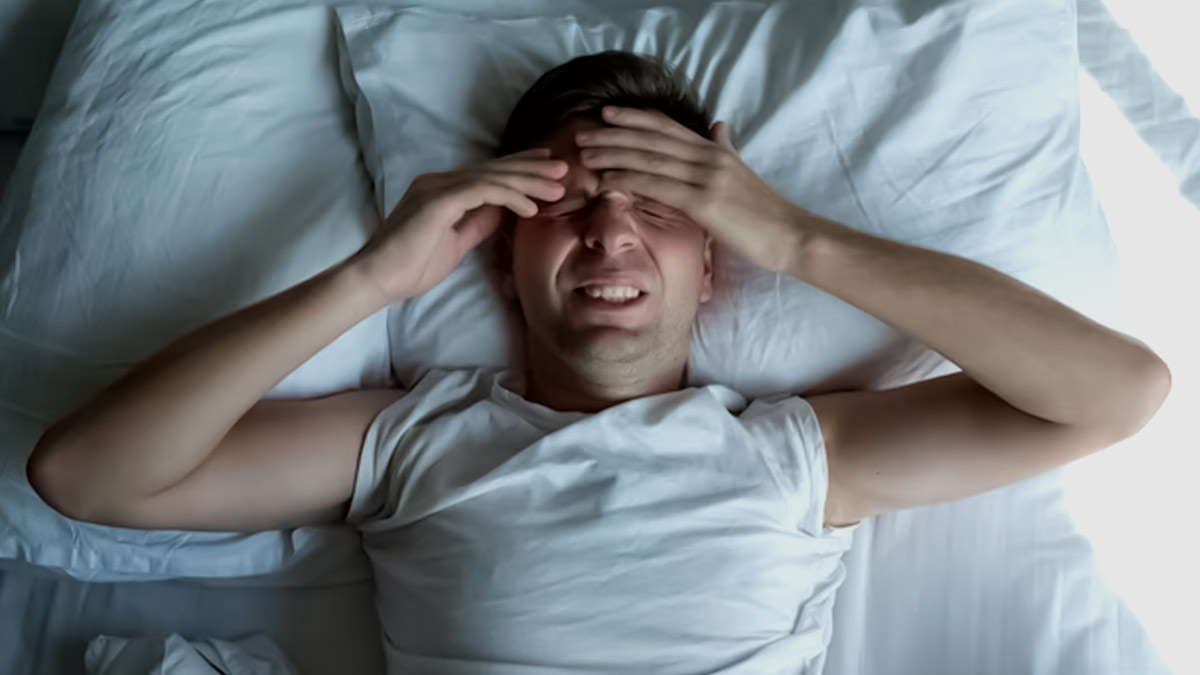
Are migraines keeping you up at night? Countless nights spent tossing and turning, trying to find that elusive moment of rest can take a toll on both your physical and emotional well-being. You may experience throbbing headaches, nausea, and sensitivity to light and sound. But fear not! In this article, Dr Vinny Sood, Senior Consultant, Neurology, Max Hospital, Gurugram, listed sleep tips especially tailored for people with migraines, so you can bid farewell to those restless nights.

Dr Sood said, “Migraine is one of the most common neurological diseases that cause various symptoms, including pulsing headaches, nausea, and vomiting. It can also make people sensitive to light and sound, rendering them helpless due to the intensity of the headaches.”
He added, “Migraine is diagnosed based on a history of headache attacks lasting from 4-72 hours, associated with specific characteristics such as nausea and vomiting, photophobia (irritation with light), or phonophobia (irritation with sound).” According to the British Journal of General Practice, one in three people with migraines think their condition dictates their life, and this has an effect on their loved ones as well.
Triggers For Migraines
Dr Sood listed some common triggers for migraines as follows:
- Fasting
- Delayed intake of meals
- Sunlight
- Travelling
- Stress
- Certain food items
- Smell
- Dust and pollutants
Sleep Tips for People with Migraines
For people with migraines, maintaining a disciplined sleep cycle is essential to manage and prevent migraine attacks. Quality sleep can play a crucial role in overall migraine management. Here are some sleep tips that may be helpful:

Consistent Sleep Schedule
Dr Sood suggested going to bed and waking up at the same time every day. Establishing a regular sleep schedule helps your body develop a natural circadian rhythm.
Avoid Afternoon Naps
You should resist taking afternoon naps and aim to sleep only at night to maintain a healthy sleep-wake cycle.
Limit Screen Time
Dr Sood said, “The blue light emitted by phones, tablets, and computers can disrupt sleep patterns. Limit screen time at least an hour before bedtime to improve sleep quality.”
Early Dinner
Avoid having late meals and aim to eat dinner by 8 pm, giving your body enough time to digest before bedtime.
Create a Sleep-Friendly Environment
Dr Sood highlighted, “Keep your bedroom dark, quiet, and at a comfortable temperature. You can even try using blackout drapes, white noise machines, or earplugs, if necessary.”
Also Read: Do You Talk In Sleep? Expert Explains Sleep Talking, Its Causes, And Treatment
Reduce Caffeine and Stimulant Intake
Avoid or minimise caffeine and stimulant consumption, especially in the afternoon and evening, as they can interfere with falling and staying asleep.
Stress-Reduction Techniques
Practise stress-reduction techniques, such as meditation, deep breathing exercises, or yoga to calm your mind before bedtime.
Regular Physical Activity
The power of physical activity should not be neglected when it comes to sleep. This helps improve your sleep quality, however, avoid intense exercise close to bedtime.

Identify Trigger Foods
Dr Sood added, “Certain foods may trigger migraines or disrupt sleep. Pay attention to your diet and avoid potential triggers, especially before bedtime. You should avoid foods like cheese, chocolates, coffee, coke, preservatives, wine, and citrus fruits.”
Sleep Journal
Keep a sleep journal to track your sleep patterns and identify any potential connections or triggers, enabling you to make more informed lifestyle adjustments.
Consult Healthcare Professional
Before using any sleep supplements or medications, consult with a healthcare professional to ensure their safety and effectiveness.
Address Specific Triggers
If you know specific triggers for your migraines, try to address them in your bedtime routine. For example, if bright lights trigger migraines, dim the lights before bed.
Break the Cycle of Insomnia
If you don't fall asleep within half an hour, leave the bed and take a short walk to break the cycle of insomnia.
Bottomline
Dr Sood concluded, “If the frequency of headaches is more than once a month, then one needs to consult a doctor and potentially start prophylactic medicines for migraine after consultation.”
Disclaimer
The information provided in this article is shared by an expert and is for informational purposes only. Hence, if you experience frequent migraines that interfere with your sleep, consult with a healthcare professional immediately.








